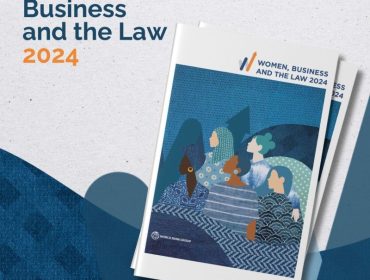
A workforce boom makes SMEs more important than ever in Africa
21th September, 2018 – Forty-nine countries have signed up so far this year to join the African Continental Free Trade Area, which is the latest contribution to a perennial debate: how to create more jobs on the African continent.
The need to remove all possible impediments to job creation is a very real one. Recent UN forecasts suggest that by 2050, the world will have an extra 2.2 billion people and over half (1.3 billion) will come from Africa. That’s 1.3 billion more people to be fed, housed, educated and trained with skills that will lead to jobs in tomorrow’s economy.
Similarly, the IMF predicts that by 2035 the number of Africans joining the working age population will exceed that of the rest of the world combined. This population explosion is either a demographic dividend or millstone, depending on one’s optimism about Africa’s future economic growth.
The debate about job creation and growth in Africa often focuses on trade barriers or the huge investments required in infrastructure and power – typically multi-million dollar projects – that are correctly seen as pre-requisites for Africa to fulfil its potential. The role of private equity (PE) also garners much attention, and perceptions about foreign direct investment in Africa can often be dominated by what PE is doing and where.
These factors are all relevant, but too little analysis is done on investment in small-to-medium enterprises – those day-to-day businesses that are the backbone of any economy.
A 2017 World Bank Report noted that SMEs total more than 95% of registered firms worldwide. The ratio for Africa is no different. You can have all the free trade areas and infrastructure you like, but successful economies need successful SMEs.
Unfortunately, SMEs can be seen as risky propositions by commercial lenders in Africa. Banks compete for mass market savings and have extended mobile banking, but this is not matched by dynamism in lending to SMEs. Where lending does occur, it is often at crippling interest rates of up to 20%.
PE has invested heavily in Africa, but this form of investment tends to overlook SMEs due to stringent qualifying criteria related to enterprise track records and the near-term pressure on PE to profitably exit from investments.
As ubiquitous as SMEs are, and as talented as their management teams can be, they are inevitably more inclined to the nuances of doing business in the local African context, which doesn’t necessarily gel with the requirements of an overseas PE financier, focused on a five-year exit plan. There is a natural disconnect.
It could be argued that a policy of flexible and patient capital is required towards African SMEs. This does not mean an interminable delay in a return on investment to investors, rather that foreign investors need to take a long-term view of the African country and SMEs they select to invest in, and a long-term view of the people they work with and the issues they face.
Investors should take into account factors such as first-mover advantage, existing competition and government incentives. Historical performance in other business areas can also indicate potential. If an opportunity makes good business sense but company leadership is weak, a financier could decide to strengthen the management team.
Patience also means investors take time to understand the environment their SME operates in and the challenges faced, such as infrastructure deficiency and precarious power supply. SME management may be resourceful in handling the challenges of a local environment, but they may not necessarily be in the mould of Western European or American MBA management skills.
Whatever form patience and flexibility takes, it has to happen. Releasing the potential of African SMEs is crucial to creating jobs for those 1.3 billion new entrants to the African economy and for the continent’s population rise to be positive, instead of ruinous.
If local banks and the international PE model aren’t sufficient, there is a huge opportunity for enlightened Middle Eastern investors to fill the void. This may require some careful hand-holding for those entering previously uncharted regions or new fund structures that are more SME-focused than the average international PE fund.
The hand-holding in this context will involve building trust which has been cited as an issue holding back Middle Eastern investors from exploring SME opportunities in Sub-Saharan Africa. It will not happen overnight and will require patience, perseverance and goodwill from either side.
To date, capital invested by Gulf countries in Africa has been gradually increasing, mostly driven by the region’s geographical proximity to East Africa. Time will tell how significantly Middle Eastern investors with a flexible and patient view take the plunge, or, whether African domestic lenders will relax their lending practices. But investment in African SMEs must surely happen.
Written by The National
Related Post
Digital Entrepreneurship in Africa
Africa’s progress in entrepreneurship, digital innovation, and its young population lays a solid foundation for achieving the United N...
Women, Business and the Law 2024:...
Women, Business and the Law 2024 This year’s report, the 10th in the series, finds that women worldwide continue to have fewer legal r...
European Commission launched AI innovation package...
On 24 January, the Commission has launched a package of measures to support European startups and SMEs in the development of trustworthy Art...




